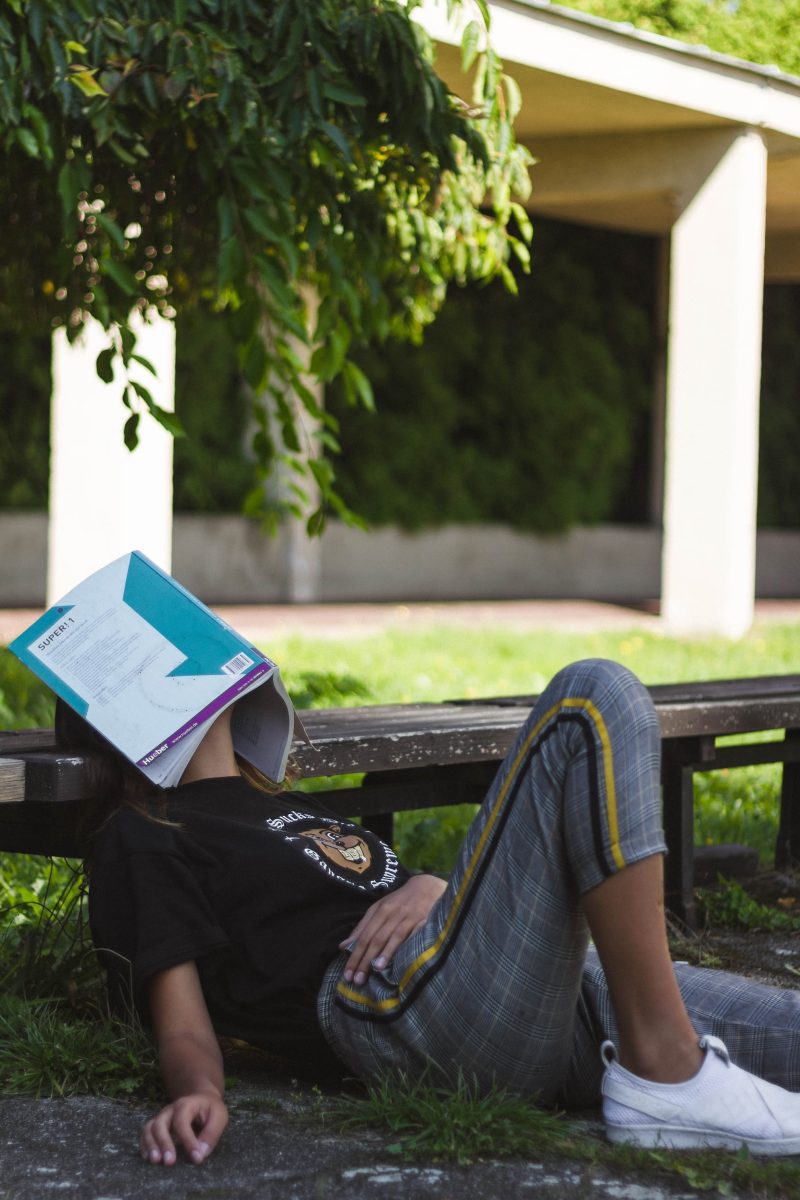With the second semester of 2023-2024 now in full swing at Lincoln East, and with graduation for many only a few months away, the senior student body is now squarely within prime time for contracting senioritis. But what is senioritis, and how can students work to overcome it?
Senioritis is the common drop in motivation and simultaneous increase in apathy and likelihood to disregard schoolwork that is experienced by the vast majority of high school seniors. Having hit their limits, dealing with heavy expectations, or under academic stress – and with graduation now in sight, many students find it difficult to take care of responsibilities such as attending class or studying.
“Every single day in all our classes we get a brand new sheet of homework…and it’s expected for you to be able to keep up with all of that,” an anonymous senior at East said. “I’m someone who loves learning, but when it’s constantly piled on top of me it can be hard to stay motivated and want to actually keep going.”
Senioritis can make it difficult to care about maintaining effort in study or academics at all. With the finish line of the high school experience in sight, slacking in class may seem inconsequential, but giving in to the exhaustion of senioritis can have real long-term consequences jeopardizing students’ higher education.
And though overcoming senioritis may seem daunting, there are several practiced methods to help students do their best in their last year.
One piece of advice is to work on staying organized. Using a planner, scheduling ways to use time, or making sure to set aside specific hours to work on assignments can help to lighten the heavy load.
“Falling behind or procrastinating will only make your senioritis worse,” Southern New Hampshire University article “What is Senioritis and is There a Cure?” said. “Breaking up your work into smaller pieces will make it feel more manageable.”
Another piece of advice is setting goals, long and short term, to help keep motivated. By setting it up so that small victories are accomplished on the way to greater ones, students can become motivated for longer. Subsequently, rewarding oneself for succeeding or accomplishing a task is another helpful method to overcoming burnout. Receiving credit, recognition, and reward is a great way to boost mood and motivate continued effort.
Finally, and possibly most significantly, there’s learning to relax and take breaks. So much of the burnout felt from senioritis comes from student stress and overworking, so removing unnecessary stressors and setting aside time to relax, rejuvenate, and recharge is essential to maintaining mental health and combating senioritis.
Though there’s a variety of tips and tricks students can implement to prevent burnout, the primary method to overcome a lack of motivation is for students to focus on themselves and their needs. Senior year is often exhausting, but the more time is spent on figuring out how to best alleviate the pressure, the more successful students can be while moving on to new things.



